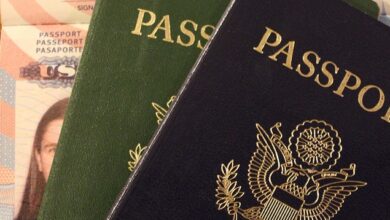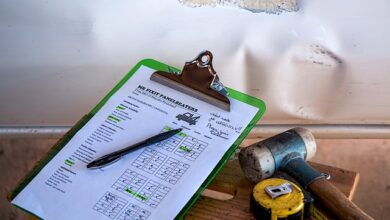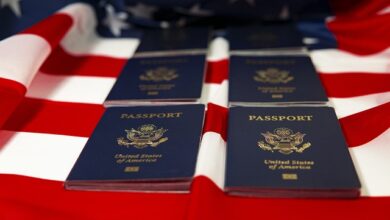Dutch Citizenship by Descent: Who Qualifies?

Obtaining Dutch citizenship can be a significant milestone for individuals with ties to the Netherlands. One of the ways to acquire Dutch nationality is through descent, meaning that you may qualify if you have a parent or grandparent who is or was a Dutch citizen. However, the rules surrounding Dutch citizenship by descent are complex and depend on various factors, including the generation in question, the date of birth, and the legal status of your ancestors at the time of your birth. This article will provide a comprehensive overview of who qualifies for Dutch citizenship by descent.
Understanding Dutch Citizenship by Descent
The Netherlands follows a principle called jus sanguinis , which means citizenship is primarily based on bloodline rather than place of birth. If one of your parents or grandparents was a Dutch citizen, you might be eligible for Dutch citizenship. However, there are strict conditions and exceptions that must be met.
Eligibility Based on Parental Descent
1. If Your Parent Is a Dutch Citizen
- Automatic Citizenship : If your parent was a Dutch citizen at the time of your birth, you automatically acquire Dutch citizenship. This applies regardless of where you were born.
- Parental Responsibility : Until 1985, only fathers could pass on Dutch citizenship to their children. From January 1, 1985, both mothers and fathers can transmit citizenship equally.
- Adoption : If you were adopted by a Dutch citizen before turning 18, you may also qualify for Dutch citizenship.
2. Conditions for Parental Descent
- Your parent must have been recognized as a Dutch citizen at the time of your birth.
- If your parent lost their Dutch citizenship (e.g., through naturalization in another country), this could affect your eligibility.
- In cases of unmarried parents, additional documentation may be required to prove the relationship.
Eligibility Based on Grandparental Descent
1. Through Your Parent’s Dutch Parent
- If your parent was born to a Dutch citizen but did not acquire Dutch citizenship themselves, you might still qualify under certain conditions.
- The key requirement is that your Dutch grandparent must have been a citizen at the time of your parent’s birth.
2. Key Conditions for Grandparental Descent
- Direct Lineage : You must be able to trace your lineage directly back to the Dutch grandparent.
- Registration Requirement : Since March 1, 2020, descendants of Dutch citizens must register their claim within five years of turning 18 or becoming aware of their eligibility. Failure to do so may result in loss of rights.
- Residency in the Netherlands : In some cases, you may need to demonstrate a genuine connection to the Netherlands, such as by living there or having family ties.
3. Special Cases
- If your Dutch grandparent lost their citizenship due to marrying a non-Dutch person before April 1, 1985, you may still qualify under specific provisions.
- Descendants of former Dutch colonies (e.g., Suriname) may have unique pathways to citizenship depending on historical treaties.
Additional Requirements and Exceptions
1. Dual Citizenship
- The Netherlands allows dual citizenship in certain cases, such as when acquiring Dutch citizenship through descent. However, if you already hold another nationality, you may need to check whether that country permits dual citizenship.
2. Loss of Citizenship
- Dutch citizenship can be lost if a person voluntarily acquires another nationality without first obtaining permission from the Dutch government. This could impact your eligibility if your ancestor renounced their Dutch citizenship.
3. Age Limitations
- Children under 18 may automatically acquire Dutch citizenship if their parent becomes a Dutch citizen.
- Adults over 18 must apply for citizenship through naturalization or restoration, depending on their circumstances.
Steps to Apply for Dutch Citizenship by Descent
If you believe you qualify for Dutch citizenship through descent, follow these steps:
- Gather Documentation :
- Birth certificates of yourself, your parents, and your grandparents.
- Proof of your Dutch ancestor’s citizenship (e.g., passport, municipal records).
- Marriage certificates or adoption papers, if applicable.
- Contact the Dutch Consulate or Embassy :
- Submit your application and supporting documents to the nearest Dutch diplomatic mission.
- Register with the IND :
- The Immigration and Naturalisation Service (IND) will review your case and determine your eligibility.
- Attend an Interview :
- You may be required to attend an interview to verify your identity and confirm your relationship to your Dutch ancestor.
- Receive Confirmation :
- If approved, you will receive a certificate confirming your Dutch citizenship.
Common Challenges and Solutions
1. Lack of Documentation
- If you cannot locate necessary documents, contact Dutch archives or municipal registries for assistance.
2. Complex Family Histories
- For cases involving multiple generations or mixed nationalities, consult a legal expert specializing in Dutch citizenship law.
3. Time Constraints
- Ensure you meet all deadlines, especially the five-year registration period introduced in 2020.



